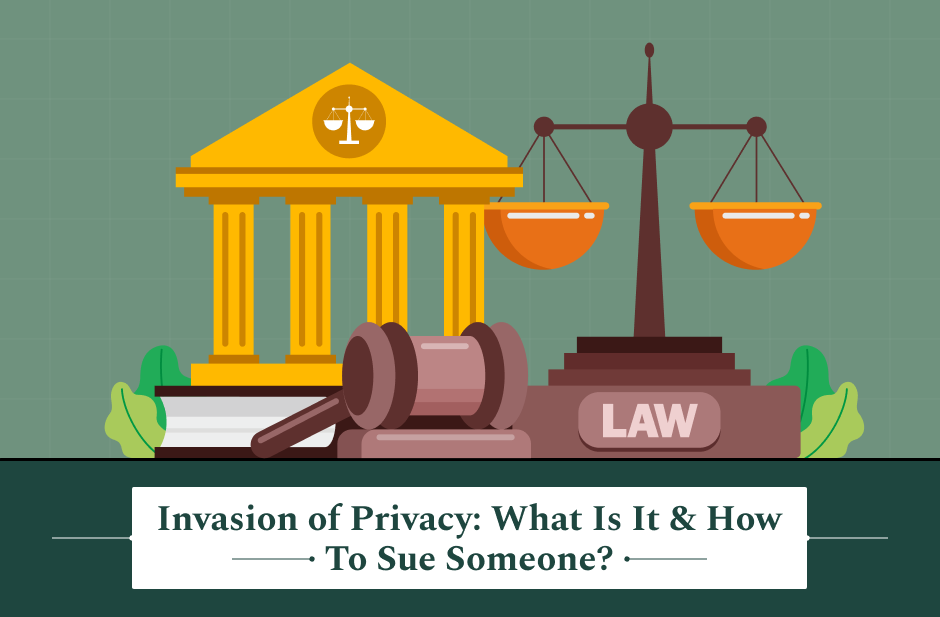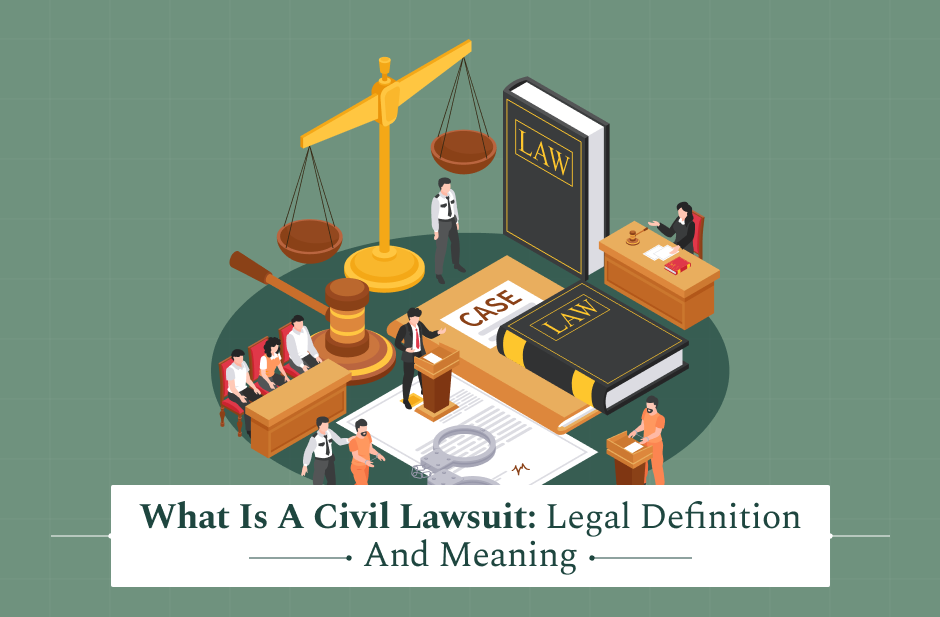Invasion of privacy means someone has done something that made your private life not-so-private anymore.
Maybe they shared your photos without asking, recorded you when you didn’t know, or spread lies that hurt your image.
It feels wrong, and it is wrong.
Each individual is entitled to maintain certain aspects of their life in private, and if a person violates that boundary, it is considered an invasion of privacy.
Through this article, I aim to educate you on the meaning of privacy invasion and the different forms of it.
And that’s not all! I will also tell you the instances during which you can react and the appropriate ways of doing so, for example, taking the perpetrator to court.
If you wish to learn the steps of suing a person or filing a complaint against them for privacy invasion, you are at the right spot! So, keep on reading till the very end.
What Is Invasion Of Privacy?

Can you imagine if someone took your diary and read it aloud in front of the whole school without your permission?
Or if someone was constantly after you and secretly took photos of you when you didn’t want them to?
That is exactly the feeling of an invasion of privacy—a situation where someone has gone beyond your personal space or has shared your private life without your permission.
In the language of the law, invasion of privacy is when somebody unrightfully takes your right of being alone or they reveal your private things without your consent.
It is not just a bother—actually, it can be dangerous. It might poison your standing, make you fearful, or even cause you to be wrongfully accused.
This law is aimed at the provision of your peace, safety, and personal space. No matter whether it is a person, a business, or a stranger online—if they go too far and violate your privacy, the law is there to protect you and to force them to respect it.
Let’s look at the different ways this can happen.
What are the Different Types of Invasion of Privacy?
There are four main types of invasion of privacy:
- Intrusion of Solitude: A case like this will occur if some person unlawfully watches, listens to, or follows you, without your permission. Examples of such actions are secret cameras in your room, or eavesdropping your phone calls.
- Public Disclosure of Private Facts: If anyone discloses some private matter about you, which some people would never agree to be made public, like your medical records, or personal story, that would be a problem.
- False Light: This situation can be described as a case of one person who is spreading incorrect or misleading information about you, which makes you look good to others, if pits you, albeit not technically slander.
- Appropriation of Name or Likeness: It signifies that somebody uses your name and/or your photo as an ad made content, thus, along with a video or website, becomes a money-making/promotional vehicle for their case, which is, however, done without informing you first.
Such actions, being at the head of each of the above mentioned groups, can lead to a wide range of reactions from people emotionally, embarrassment to serious things, just to name a few.
Examples of Invasion of Privacy
Here are some everyday examples to make it clear:
- Someone takes a photo of you changing clothes through a window and shares it online.
- A website posts your personal medical details without your consent.
- A company uses your face in a commercial to sell a product, but you never gave them permission.
- A fake story is published that says you did something terrible—even though it never happened.
These situations aren’t just uncomfortable—they’re often illegal.
Can You Sue Someone for Invasion of Privacy?

Yes, you can sue someone for invasion of privacy if they crossed the line and harmed you. Taking legal action can help stop the person from continuing and may even get you compensation (money) for the emotional and mental stress they caused.
Here’s a simple step-by-step look at how you can sue:
1. Understand What Happened
Before you do anything, you need to be clear about what the person did. Did they share something private? Spy on you? Use your photo without asking? You must figure out which type of invasion of privacy it was.
2. Gather Proof
You’ll need to collect evidence. This could be screenshots, videos, messages, or anything else that shows what they did. The more proof you have, the stronger your case will be.
3. Talk to a Lawyer
Find a lawyer who understands privacy laws in your state. They’ll help you know your rights, explain if you really have a strong case, and guide you on what to do next.
4. File a Lawsuit
If your lawyer agrees that you have a good case, they can help you file a lawsuit in court. This starts the legal process. The court will then look at the facts and decide if you deserve compensation or other legal help.
Your Legal Guide: What are the Legal Consequences of Invasion of Privacy?

If someone invades your privacy, the law can step in to protect you. The person or company responsible may face serious consequences. They could be ordered to:
- Pay you money to make up for the harm they caused.
- Publicly take back what they said or shared.
- Stop sharing your private information.
- Or in extreme cases, face criminal charges if what they did was against a specific law (like secretly filming you).
Keep in mind: your privacy is important.
No matter if it is at your home, on the internet, or in a public place, you have the right to be free from any kind of violation and definitely treated with respect.
If anyone gives you that treatment, do not keep it to yourself. Get in touch with a lawyer and find out what you can do.
There is absolutely no situation in which a person can behave towards your private life as if it were public property. The law is on your side—and it will protect you.
Read Also:
















